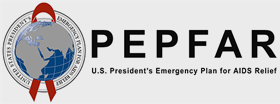The contents on this webpage support the collection, validation, analysis, and reporting of the End-Use Verification (EUV) survey in a way that aims for consistency and quality of data across the entities that conduct this survey. Per data confidentiality policies of the countries collecting this data, the data are not distributed publicly.
If you would like to learn more about the EUV Survey, please contact PSMEUVCoordination@ghsc-psm.org
History of the Survey
The EUV survey funded by the U.S. Agency for International Development (USAID) is a country-implemented and managed health facility survey used to monitor the availability of malaria, family planning (FP), and maternal, newborn, and child health (MNCH) commodities. The survey is used to:
- Establish stock statuses where missing or to triangulate LMIS of key malaria, MNCH, and FP/RH medicines and commodities
- Collect data not captured in LMIS (e.g. stock management challenges, stockout reasons, why products are not managed at facilities, case management)
- Assess gaps or challenges with inventory management and commodity storage practices and conditions of facilities and equipment
- Assess gaps in training and supervision or doubling as a supportive supervision activity.
- Inform strategic planning at country and global levels (e.g. trend analysis)
The survey was developed in 2008 by the U.S. President’s Malaria Initiative (PMI) in collaboration with the USAID | DELIVER PROJECT and the Strengthening Pharmaceutical Systems Program (later the Systems for Improved Access to Pharmaceuticals and Services Program) to monitor the availability of malaria commodities in PMI-supported countries. The EUV was designed as a temporary exercise led by USAID implementing partners (in close collaboration with USAID missions and country ministries of health or other government counterparts) to collect important supply chain data that a country’s logistics management information system (LMIS) may not be able to provide at all, or at a sufficient level of quality or geographic reach. Currently TO3 (family planning/reproductive health) and TO4 (mother, neonatal, and child health) also implement the EUV with the same objectives.
EUV Revisions and Additional Tools
As EUV data continue to be used by many country stakeholders to make policy and planning decisions and to monitor changes over time, PMI together with the USAID Global Health Supply Chain Program – Procurement and Supply Management (GHSC-PSM) project updated the questionnaire and accompanying materials (referred to as the “EUV Package”) in 2018-2019 and again in 2022 with the following goals:
- To standardize the survey across countries for uniform data quality;
- To centralize survey management to ensure timely access to the raw and analyzed data by authorized users and to better coordinate support to country EUV teams;
- To ensure a minimum and quantifiable level of data confidence that is representative at the national level in all countries;
- To strengthen the reliability of the data by increasing the robustness of the survey questionnaire;
- To refine survey questions and indicators to improve clarity and streamline the process to align with current uses of the survey; and
- To add the COVID Continuity of Care module for proper tracking of COVID-19 disruptions to end use.
The revised EUV package intends to make the data more useful for decision making, while still maintaining the original goal of ensuring rapid data availability to monitor the availability of malaria commodities in PMI-supported countries.
Contents of the Updated EUV Package
- An updated, standardized survey questionnaire in SurveyCTO, including new standard modules for MNCH and FP/RH commodities
- An updated sampling approach including sampling tool, instructions and description template
- Standard training curriculum covering data collection and validation
- Performance Indicator Reference Sheets (PIRS)
- An Excel-based (“paper”) survey tool to supplement/support the electronic data entry
- Power BI report template
- EUV planning quick reference guide
- Background and information sheets
- Data dictionary
Software Requirements
- SurveyCTO
- Power BI
- Microsoft SharePoint
- Microsoft Excel
- Microsoft Word
- Mobile device (IOS or Android) recommended for data collection




